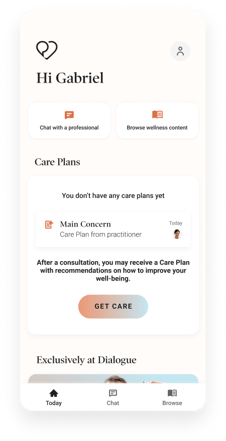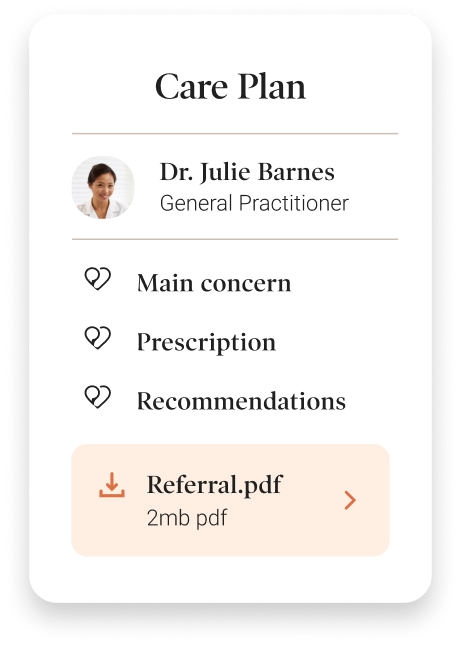Health is everything. Don’t settle.
Discover the EAP your employees wish they had
Dialogue’s Employee Assistance Program is built to deliver real outcomes, especially when paired with Mental Health+ and Primary Care: personalized care plans, seamless in-person and virtual access, and consistent, compassionate hospital-grade support that follows through. See for yourself.




 Canada (EN)
Canada (EN)
 Global (EN)
Global (EN)






















